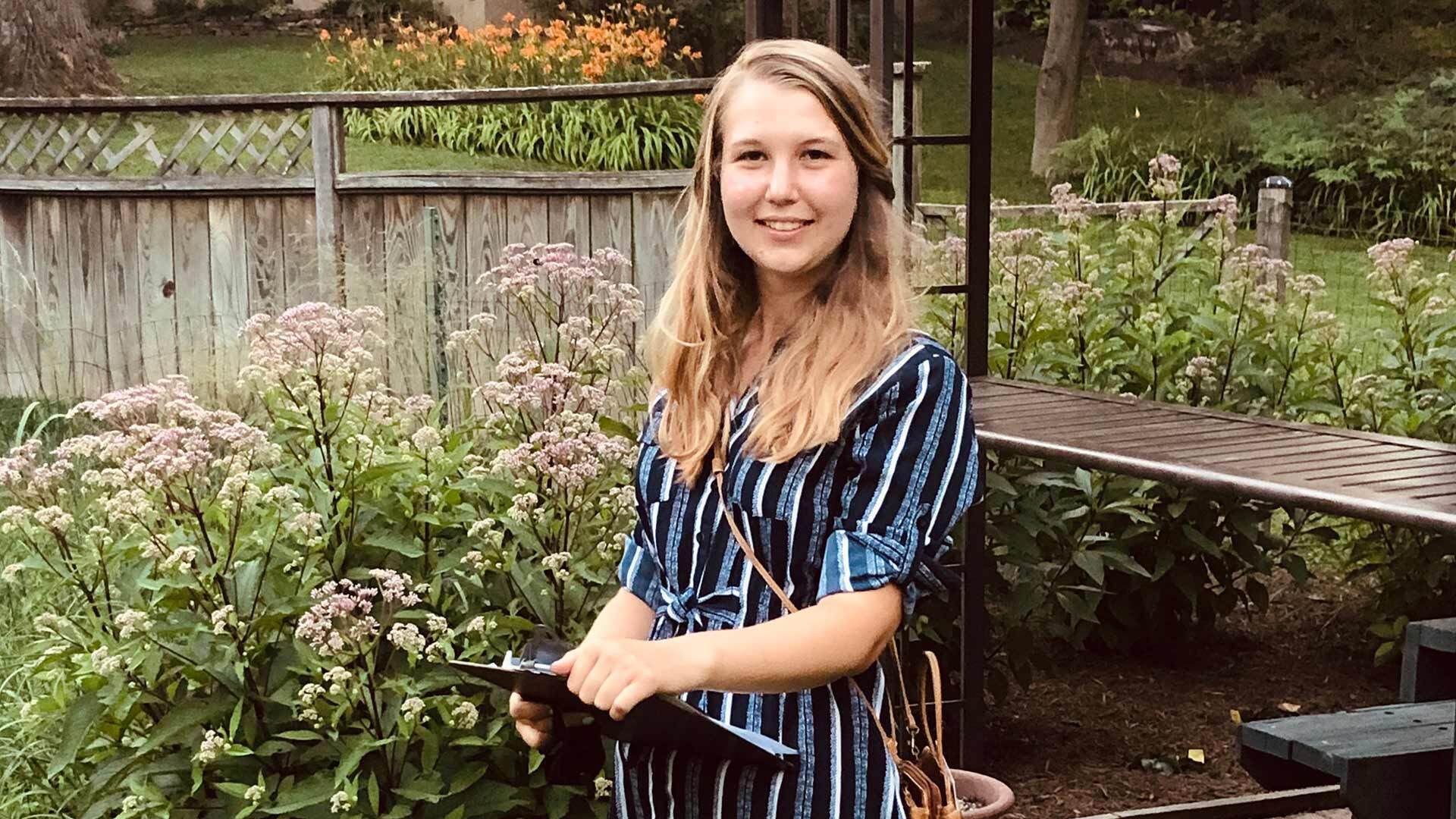- October 14, 2020
- By Samantha Watters
Meeting federal guidelines for accessibility isn’t always pretty. In fact, people in wheelchairs might be detoured to ramp routes past trash cans. Or maybe the ramps are enclosed by high barriers that show no outdoor context at all and feel claustrophobic.
That’s what landscape architecture major Audrey Wilke ’20 discovered during two months of using non-stair paths to learn how people with disabilities were being accommodated.
It also got her thinking about how landscape design meeting the minimum standards of the Americans With Disabilities Act (ADA) works in real life: A difference in ground texture might benefit people with visual impairments but create discomfort for people using knee scooters. Or fragrant plants or a dominating water feature might be overwhelming to people with autism.
Wilke is continuing her research in this area with funding she was awarded by the Landscape Architecture Foundation as a 2020 Olmsted Scholar finalist; she is one of only eight students to receive the national honor named for Frederick Law Olmsted, the father of American landscape architecture. She is developing a comprehensive guide for disability-inclusive landscape design, in hopes of changing the designer mindset from accessibility to inclusivity of all who use outdoor spaces.
“I want to have some part in creating landscapes that are more equitable, especially for people with disabilities,” said Wilke. “I think it is so forgotten because most designers haven’t had a firsthand experience with disabilities, so it’s easy to get lost in ADA code.”
Wilke decided that when applying for the Olmsted Scholars Program, she would share her experiences as a dyslexic student to help shed light on the issue of inclusivity. She recalled that third grade, with its focus on memorization for spelling and multiplication tests, was more difficult than the last year of her undergraduate program at UMD. The College of Agriculture and Natural Resources’ Landscape Architecture Program teaches concepts and how to apply them, she said, "and that’s what I’m really good at.”
“I don’t have a physical disability, but I have the empathy from my own experiences. It’s those moments when someone makes a joke about dyslexia and I think, ‘Okay, well I know this is how people with physical disabilities feel when they are excluded as well.’ So I’m going to apply my skills and my experiences to help.”
Christopher D. Ellis, professor and director of Landscape Architecture Program, said Wilke is “guided by a moral compass that reaches out toward those left behind by society’s systems and norms.”
Her determination and hard work position her to change not just the way professionals create universally accessible design, he said, “but the casual attitudes of those who engage in it.”
There are already guides in landscape architecture for ecology and stormwater, so a guide for disability-inclusive design could a welcome addition. She’s currently interviewing people in the disability community to learn from their experiences so that designers can be better informed.
In addition, Wilke works as an apprentice landscape architect in Arlington, Va., and remains an active member of the university’s President’s Commission on Disability Issues Student Advisory Committee. Her perspective matches a central theme for the organization: shifting the mindset from “Let’s make things easier for people with disabilities” to “Let’s make things easier for all people,” said Adith Thummalapalli ’20, a founding member of the committee.
“Inclusion is associated with all people, and measures to achieve inclusion can oftentimes benefit those without disabilities as well,” he said. “For example, installing a ramp doesn’t just help people who use wheelchairs or have mobility impairments. It helps the elderly, people with small children in strollers, people who have suffered broken bones, and more.”
Wilke said sometimes it can feel like change comes so slowly for people with disabilities. “But to see people in the landscape architecture community taking notice with this award and having the support of my professors in LARC for this work has been really touching.”
